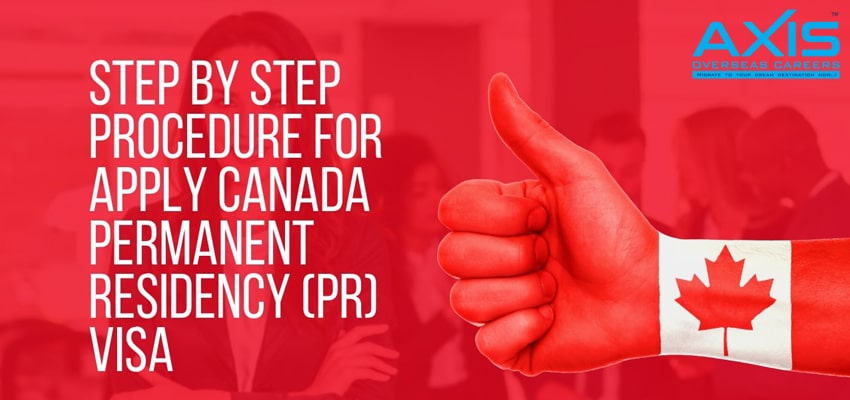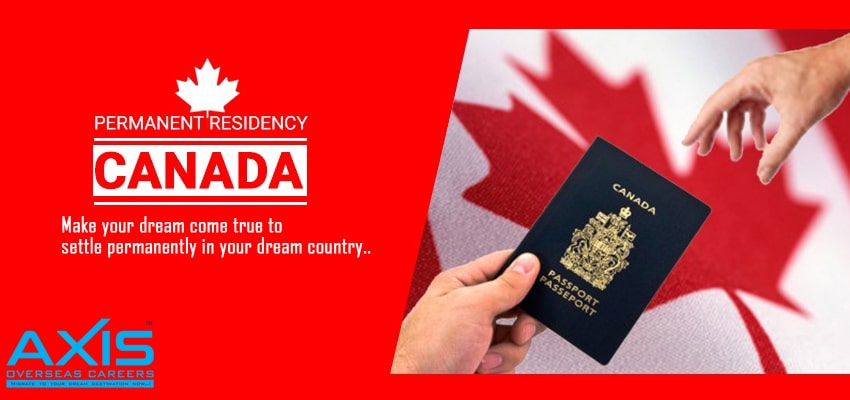
A permanent residency in Canada is someone who has been given permanent resident status by immigrating to Canada, but is not a Canadian citizen. Permanent residents are citizens of other countries.
A person in Canada temporarily, like a student or foreign worker, is not a permanent resident.
Refugees who are resettled from overseas become permanent residents through the Government-Assisted Refugee Program or the Private Sponsorship of Refugees Program.
Someone who makes a refugee claim in Canada does not become a permanent resident at that time. To become one, the Immigration and Refugee Board must first approve their claim. Then, they must apply for and get permanent resident status.
The permanent resident (PR) card
Your PR card can be used to show that you have Permanent Residency in Canada. If you travel outside Canada, you will need to show your card and your passport when you come back on a commercial vehicle, like an airplane, boat, train or bus.
PRs traveling outside Canada who do not have a valid PR card, or who are not carrying it, need to apply for a permanent resident travel document before returning to Canada by commercial vehicle.
What permanent residents can do
As a Permanent Residency in Canada, you have the right to:
- get most social benefits that Canadian citizens receive, including health care coverage,
- live, work or study anywhere in Canada,
- apply for Canadian citizenship,
- protection under Canadian law and the Canadian Charter of Rights and Freedoms.
You must pay taxes and respect all Canadian laws at the federal, provincial and municipal levels.
What permanent residents cannot do
You are not allowed to:
- vote or run for political office,
- hold some jobs that need a high-level security clearance.
Time Lived in Canada
To keep your permanent resident status, you must have been in Canada for at least 730 days during the last five years. These 730 days don’t need to be continuous. Some of your time abroad may count towards the 730 days.
To help you track your time in Canada, use a travel journal. Other ways to know how long you’ve been in Canada:
- Ask a Canadian border officer when you enter Canada.
- Apply for or renew your PR card. We will tell you if you’re eligible.

Losing your permanent residency in Canada status
You don’t lose your permanent resident status when your Permanent Residency in Canada card expires. You can only lose your status if you go through an official process.
You can lose your permanent resident status if:
- an adjudicator determines you are no longer a permanent resident after an inquiry or PRTD appeal;
- you voluntarily renounce your Permanent Residency in Canada status;
- a removal order is made against you and comes into force; or
- you become a Canadian citizen.
Even if you don’t meet the residency obligation, you are still a PR until an official decision is made on your status.
Voluntarily giving up (renouncing) permanent resident status
Losing your Permanent Residency in Canada status does not happen automatically.
There may come a time when you no longer want to be a permanent resident of Canada. If so, you can apply to voluntarily give up (renounce) your permanent resident status.
For example, if you:
- know you have not met your residency obligations by being outside of Canada for a long period of time, and
- would like to visit Canada, and
- do not want to wait for a visa officer to do a formal assessment of your permanent resident status
OR
- would like to avoid processing delays at the Port of Entry
You may not be able to enter Canada until your permanent resident status is resolved either by receiving a permanent resident travel document or by voluntarily giving up your permanent resident status.
